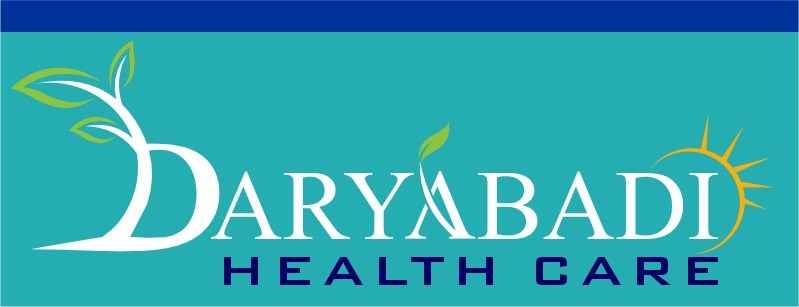UNDERSTANDING UNANI PREPARATIONS: EXPLORING THE DIFFERENCES BETWEEN MAJUN, JAWARISH, LAUQ, AND KHAMIRA
INTRODUCTION:
Unani medicine, an ancient system of healing that originated in Greece and later spread to the Indian subcontinent, emphasizes the balance of the four humors (blood, phlegm, yellow bile, and black bile) to maintain health and well-being. Unani practitioners often prescribe herbal formulations known as “majun,” “jawarish,” “lauq,” and “khamira” to treat various ailments and promote overall wellness. While these terms may seem similar, each preparation has unique characteristics, ingredients, and therapeutic properties. In this blog post, we’ll delve into the differences between majun, jawarish, lauq, and khamira, shedding light on their respective formulations and medicinal uses.
DISCLAIMER: The information provided in this blog is for educational and informational purposes only and is not intended as medical advice. The content is not intended to diagnose, treat, cure, or prevent any disease. Readers are advised to consult with a qualified healthcare professional regarding their specific health concerns and before starting any herbal remedies or health regimen. While every effort has been made to ensure the accuracy and completeness of the information presented, the author and publisher assume no responsibility for any errors or omissions. The use of herbal remedies and traditional medicine should be undertaken with caution and under the guidance of a qualified healthcare practitioner, especially for individuals with pre-existing medical conditions or those taking medications. The inclusion of specific herbs or formulations in this blog does not imply endorsement or recommendation. Individual responses to herbal remedies may vary, and it is important to consider individual health needs and sensitivities. Always read product labels and instructions carefully before use. by accessing and using this blog, readers acknowledge and agree to the terms of this disclaimer and release the author and publisher from any liability arising from the use or misuse of the information provided.
- MAJUN:
Majun is a semi-solid herbal preparation that resembles a jam or paste. It is made by grinding medicinal herbs, seeds, and other natural ingredients into a fine powder and mixing them with honey, syrup, or sugar to form a cohesive mass. Majun formulations often include ingredients such as dates, almonds, saffron, honey, and various herbs known for their therapeutic properties. Majun is commonly used in Unani medicine to treat chronic conditions, strengthen the body, and improve vitality and stamina. It is usually consumed orally and may be prescribed for conditions such as weakness, debility, infertility, and sexual disorders.
- JAWARISH:
Jawarish is a type of herbal confectionary or electuary that is typically sweet-tasting and easy to swallow. It is made by combining powdered herbs, seeds, and other ingredients with sugar, honey, or jaggery to form a sticky paste-like consistency. Jawarish formulations often contain digestive herbs and carminatives that aid in digestion, stimulate appetite, and relieve gastrointestinal discomfort. Common ingredients found in jawarish preparations include ginger, black pepper, cardamom, cinnamon, and dried fruits. Jawarish is commonly used in Unani medicine to treat digestive disorders such as indigestion, flatulence, acidity, and loss of appetite. It is usually taken orally in small doses before or after meals.
LAUQ:
Lauq is a semi-solid herbal preparation similar to majun but with a thicker consistency. It is made by cooking medicinal herbs, seeds, and other ingredients with sugar, honey, or syrup until a thick paste is formed. Lauq formulations often contain ingredients with mucilaginous and demulcent properties that soothe and protect the mucous membranes of the respiratory and digestive tracts. Common ingredients found in lauq preparations include marshmallow root, licorice, flaxseed, and honey. Lauq is commonly used in Unani medicine to treat respiratory conditions such as cough, sore throat, bronchitis, and asthma, as well as digestive disorders such as gastritis and ulcers. It is usually consumed orally and may be taken alone or mixed with warm water or milk.
- KHAMIRA:
Khamira is a semi-solid herbal preparation that resembles a thick syrup or jam. It is made by combining powdered herbs, seeds, and other ingredients with honey, sugar, or syrup and then fermenting the mixture over a period of time. Khamira formulations often contain ingredients with nutritive, rejuvenative, and tonic properties that support overall health and vitality. Common ingredients found in khamira preparations include Indian gooseberry (amla), honey, almonds, saffron, and various herbs known for their adaptogenic and immunomodulatory effects. Khamira is commonly used in Unani medicine as a general tonic to strengthen the body, improve immunity, and enhance vitality and longevity. It is usually consumed orally and may be taken alone or mixed with water, milk, or fruit juice.
CONCLUSION:
In Unani medicine, majun, jawarish, lauq, and khamira are important herbal preparations that play a significant role in treating various ailments and promoting overall health and well-being. While these preparations may share some similarities in terms of their semi-solid consistency and sweet taste, each has unique characteristics, ingredients, and therapeutic properties. Understanding the differences between majun, jawarish, lauq, and khamira is essential for both practitioners and patients seeking to benefit from the healing power of Unani medicine.


